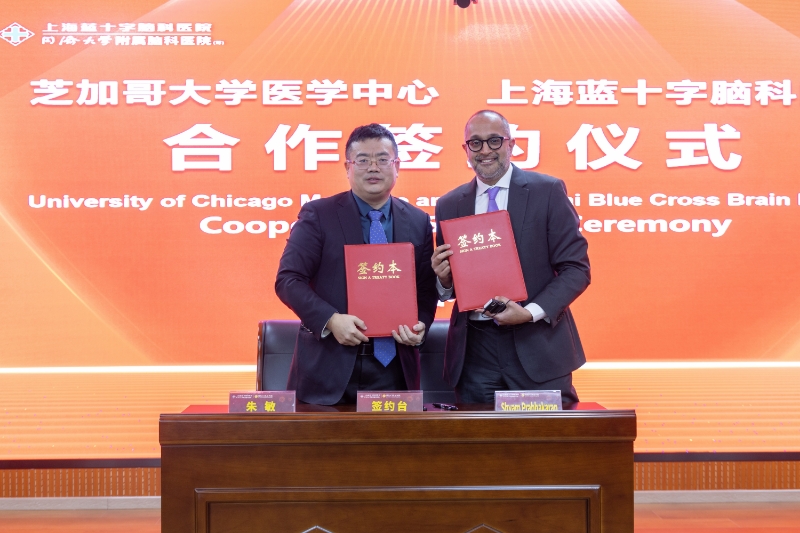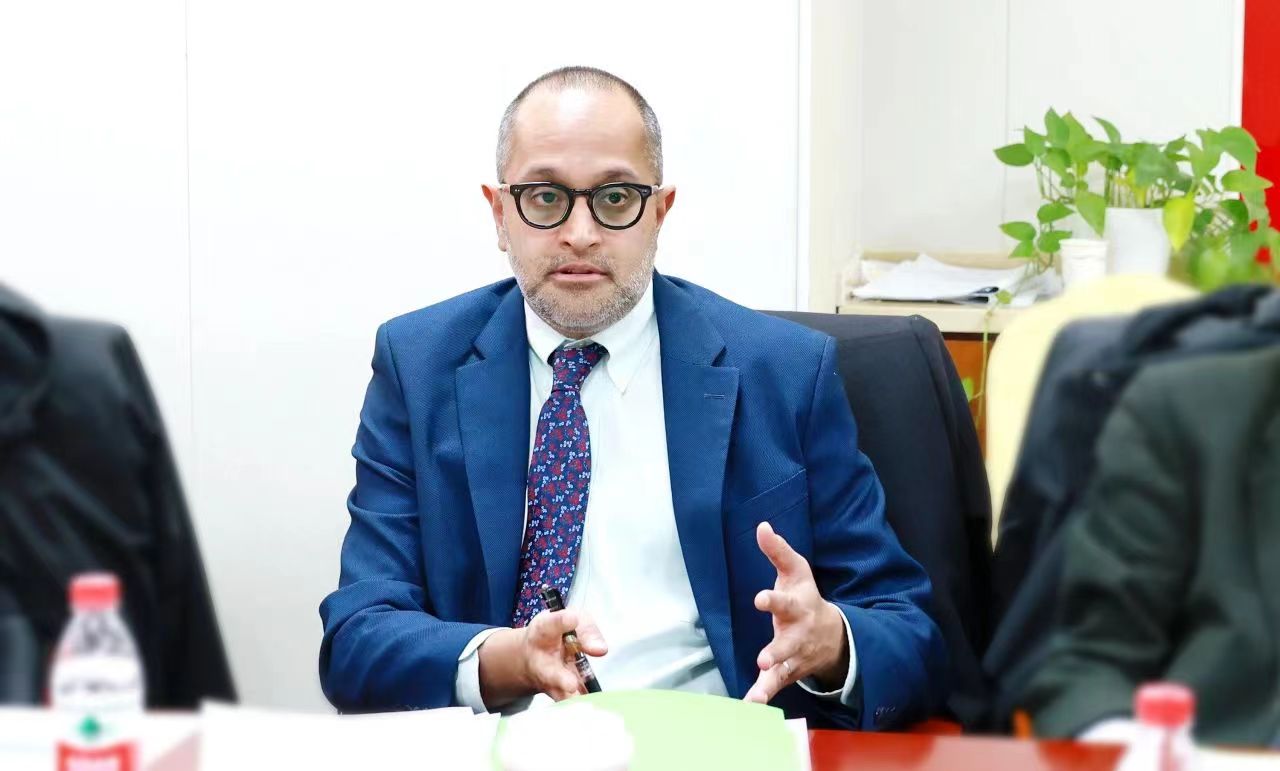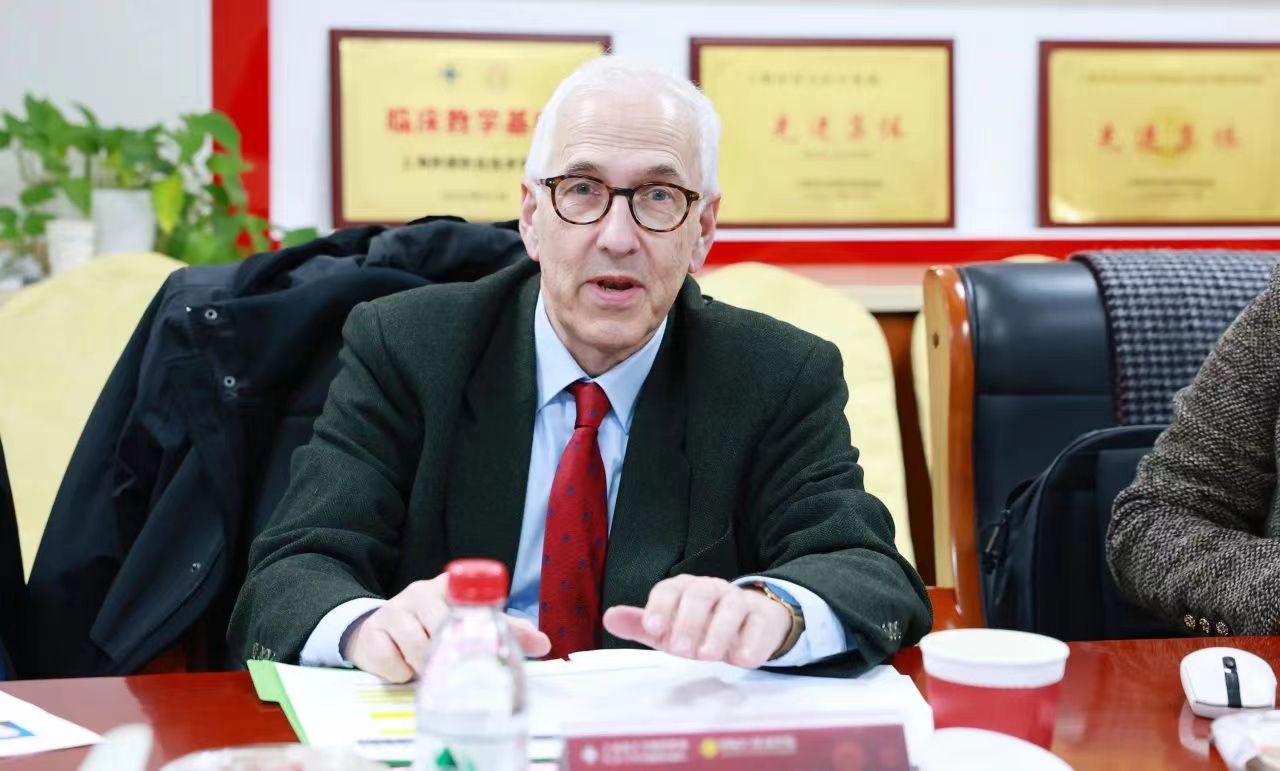 UChicago Medicine Experts Point Out China's Stunning Progress, Collaborative Potential
UChicago Medicine Experts Point Out China's Stunning Progress, Collaborative Potential(Yicai) Feb. 1 -- China is rapidly narrowing the once substantial gap with the United States in terms of the evolving healthcare landscape, according to two leading medical experts from the University of Chicago Medicine.
The gap between Chinese and US medical institutions is closing quickly and will shrink further in the next few years, Dr. Shyam Prabhakaran, an internationally recognized leader in vascular neurology and stroke research and treatment, told Yicai after recently visiting a hospital in Shanghai with his colleague Dr. Peter Warnke.

It is “very surprising to see how developed the health system has become,” Prabhakaran said.
New technology and medical centers present more opportunities for research, and this allows for quick testing of treatment efficacy, which is crucial given that not all technologies, drugs, or devices prove beneficial, he said.
“In the West and the US, we have decades of investment in health and biological sciences research, and we’ve concentrated these in hospitals and in major health systems,” Prabhakaran said. And now “China’s trying to do that,” he added.

China’s medical development in the past few years is “amazing” and not only embraces current technologies, but it has developed its own high-tech, which is almost compatible with Western tech, noted Dr. Peter Warnke, a Professor of Neurological Surgery and the Director of Stereotactic and Functional Neurosurgery at the University of Chicago.
The availability of proprietary deep brain stimulation and interstitial laser technology systems stand out as tangible evidence, he said by way of example.
Prabhakaran and Warnke were visiting Shanghai for the first time since the Covid-19 pandemic when Yicai interviewed them on Jan. 24.
The rapid adoption of technology in Chinese healthcare also serves as a valuable learning opportunity for the United States, helping experts assess the applicability of these innovations in the American healthcare landscape. Prabhakaran also mentioned traditional Chinese medicine, something which is relatively unfamiliar in the US, but is part of China's healthcare system.
American hospitals can offer their Chinese counterparts valuable lessons in efficiency, organization, and safety protocols, Prabhakaran said. Collaborative learning opportunities extend to standardized testing methodologies rooted in scientific principles and innovative healthcare solutions, including transportation-related services, with the potential to significantly enhance patient care.
China’s healthcare system, characterized by disease-specific specialization and high patient volumes, presents unique advantages for clinical research, Warnke said. Specialized centers catering to specific ailments facilitate robust research opportunities, complementing the hypothesis-driven, scientifically rigorous research methodologies emphasized in the US healthcare system. This complementary approach underscores the potential for fruitful collaboration between the two nations' healthcare systems, Warnke said.
“We are taking the steps to renew our agreement,” Prabhakaran said in regard to the collaboration between the University of Chicago Medicine and the Shanghai Blue Cross Brain Hospital that dates back to 2019. Their relationship has been going very smoothly even during the pandemic through virtual educational programs.
In 2024, the institutions are planning to expand their educational programs, with a specific focus on symposiums and conferences. This expansion encompasses both virtual sessions, building on the success of pandemic-era collaborations, and an upcoming in-person conference, said James Bae, Business Development Director of International Programs at the University of Chicago Medicine.
Rather than imposing restrictive measures, strategy should center around informing individuals about the array of available options, along with associated risks and costs, Prabhakaran, adding that the key lies in empowering individuals to make decisions that align with their specific needs and preferences.
Editor: Tom Litting